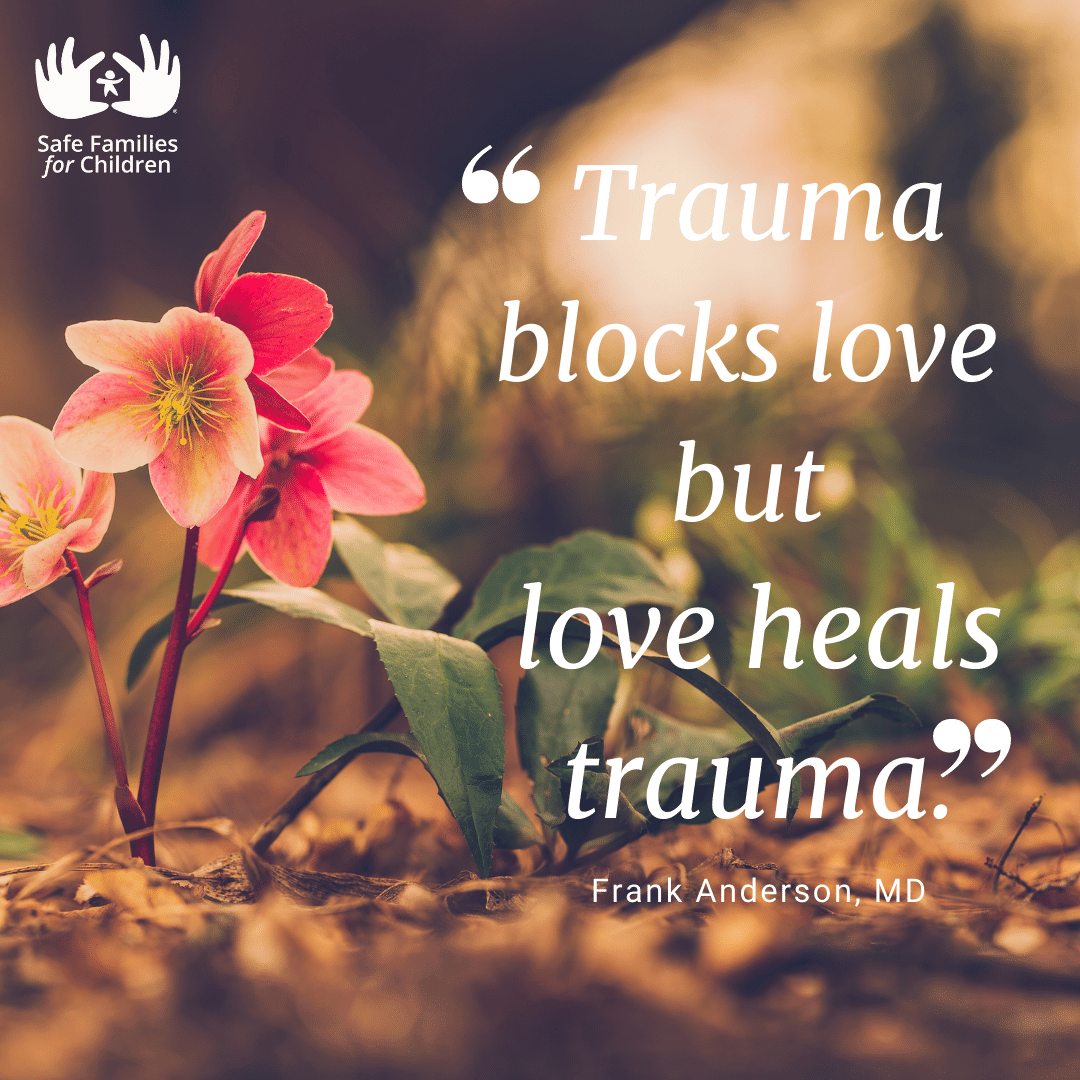Elizabeth Beseke, Minnesota State Director
When I heard the statement, “Trauma blocks love but love heals trauma” by Frank Anderson, a conversation quickly flashed in my mind. I remember it well. My Family Coach and I were sitting in a coffee shop with mom sharing how Safe Families for Children works. The response is often the same. First, disbelief and second, skepticism … and rightfully so. Salina was no different. Her posture and crossed arms said it all. “Why would complete strangers want to help me?” Salina’s body language was well-founded. She had been impacted by her personal experience in the foster care system. It was a foreign concept that a group of people would be motivated by their faith to love without strings attached; to be extended family. However skeptical, Salena partnered with Safe Families. Her children were all hosted, and she willingly moved forward in a relationship with her Circle of Support: Nancy, Tamara, Steph, and me.
Fast forward two years. A lot has changed. Not only is Salina flourishing, but her outlook and perspective have been changed by radical hospitality. Over Christmas, I had Covid and found myself quarantining during the holidays. This time, Salena reached out to me. She wanted to drop off food so I didn’t feel lonely. They were on their way to celebrate Christmas with a family that had become “her family.” I run out of the house with my hair in a messy bun and sweatpants dragging on the ground to thank Salina and see those precious children. Through the window, I waved to the babies, now three, leaning forward in their car seats to show me their toys. As Salina pulled away from the house, I was struck with the idea that love really does usher in healing.
Salina has always been a good mom. But one day she found herself struggling simply because the people she thought she could rely on suddenly pulled their help. Her support network crumbled when the father of her children left her pregnant with triplets. Salina had always worked hard and was determined to provide the best life for her children. But having the rug pulled out from under her created deep stress and anxiety brought on by her own childhood trauma.
I have often wondered what makes some people able to overcome great obstacles while others crumble. Family resilience is defined as the family’s ability to maintain or resume effective functioning—including care of its members—following potentially traumatic events. Family resilience involves adaptation over time. Community-wide stressors such as poverty, homelessness, and community violence add to family stress.
I witnessed Salina’s deep love and concern for her children on the first day they entered hosting. My heart was heavy as I saw how incredibly difficult it was for her to make the decision to trust these beautiful host moms with her precious littles. Each little face was wide-eyed as we shared our lived experience in our initial meeting. Each of us doing our best to make the children see the Safe Families volunteers as mom’s friends. It was apparent that had really happened as they each craned their neck to be sure I waived to them individually. They all knew we were mom’s friends but now we have become family!
Today, I look at this family with the same intensity of pride that I do with my nephews and nieces. I am so proud of mom as she has “resumed effective functioning” and her family is flourishing. Salina has established a place to live and is about to be promoted at her job. Her circle of support continues to offer support and community. Nancy and her husband Rich pose for proud pictures at Sophia’s basketball games and Evelyn’s dance recitals. Tamara toasts Salina’s birthday and Steph sends her a text that she is so excited for the next ladies’ night. We gather to celebrate this family every chance we get. Salina would likely have made it one way or another. Salina had all the tools. She is smart and ambitious. However, the genuine love of her circle of support was now being passed on to others.

